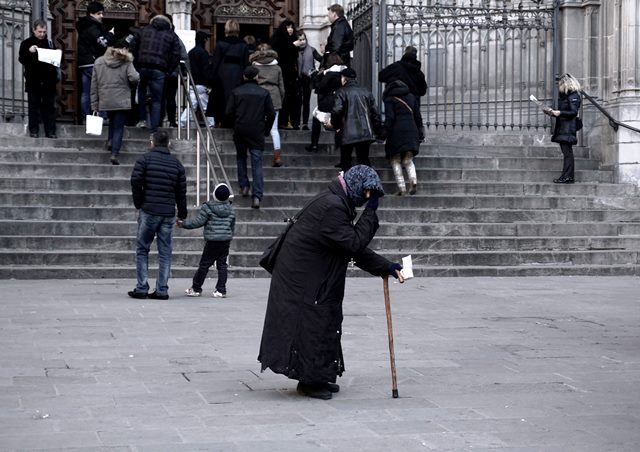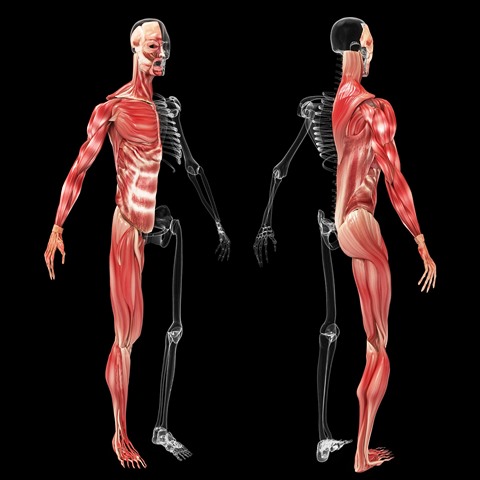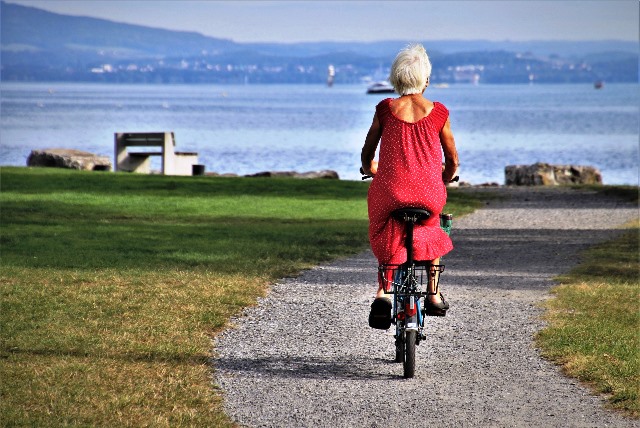Sarcopenia And How To Protect Against Muscle Loss

Today’s post is about sarcopenia and how to protect against muscle loss.
This is something that could affect any one of us in later years though not many have heard of it.
What is Sarcopenia?
Sarcopenia is age related muscle loss which leads to a significant drop in strength and function in the body. It is a topic of increasing importance because of the numbers of people affected by it.
It can lead to general frailty which affects a person’s posture, balance and mobility.
In fact, this affects someone’s ability to do everyday tasks such as lifting, carrying or even climbing stairs. And sacropenia can result in a loss of independence.
But even more than that, it can result in early death.

We begin to lose muscle mass from around 30 years of age.
That’s pretty important to note but many people don’t know about sarcopenia and how to protect against muscle loss
Low muscle mass is linked to low bone density and this can be a risk factor for fractures when we get older.
However we have a tool that can help with this- exercise.
Exercise in the form of resistance or strength training is one thing that we can fall back on.
Interestingly, sarcopenia also affects younger people, not just seniors.
People with health conditions such as Type 2 diabetes, some cancers, hormonal conditions e.g. reduced testosterone, and kidney disease among others may develop sarcopenia.
So all this sounds depressing and maybe even inevitable for us, right?
Well not necessarily. Research suggests that muscle mass and strength can be improved to prevent, or slow down the decline.
Causes:

How does sarcopenia come about?
As mentioned earlier, some muscle loss is a natural part of life, and this often starts in the decade between the 30s-40s. As we age, we naturally lose muscle mass and bone density.
Muscle shrinks and becomes less effective when we lose muscle mass.
It may also be replaced with increased body fat which can lead to a range of diseases linked to excess weight.
But sarcopenia generally comes about because of:
- A lack of enough protein necessary for muscle health.
Protein is needed to prevent sarcopenia.
Other than protein, a balanced diet with enough healthy calories and nutrients is also required to maintain the body’s daily function.
Take for example vitamin D. Low vitamin D levels have been linked to sarcopenia.
- Lack of exercise and an inactive lifestyle.
A lack of physical activity can result in body weakness which may lead to sarcopenia.
- Muscle atrophy.
This refers to the loss of muscle and this can happen in a number of ways. Some of these include serious illness, injury, extended bed rest, lack of mobility, nerve damage etc.
Muscle shrinkage as well as reduced strength can result from this.
Symptoms:
What does sarcopenia look like?
Some symptoms include:
- Low muscle mass and muscle shrinkage.
- Struggling with daily tasks like dressing, showers or climbing stairs.
- General weakness.
- Poor balance and increased falls.
- Low stamina
- Walking with difficulty.
Treatment:

There is good news on this front.
Studies have shown that many people can have good outcomes and rebuild their muscle strength with the help of strength training and a balanced diet that is rich in protein.
However this might not be the case for everyone.
It is important to see an experienced health professional who will be able to recommend the right treatment.
Sarcopenia and gaining healthy weight:

As mentioned before, this is a health issue that does tend to affect seniors. But also don’t forget, muscle mass loss begins from the ages of 30s onwards.
For those of us who are trying to gain healthy weight, this post highlights that we do need to be aware of sarcopenia and how to protect against muscle loss.
Firstly eating a balanced diet will help us with our weight gain goals and body’s needs. Also make sure you’re getting enough protein.
People who are underweight may struggle with a loss of appetite, age or illness and may not be meeting their daily nutrition needs.
In the short term this can affect their health and immunity, whilst in the long run this can be a risk factor for sarcopenia.
Those struggling to eat enough calories every day could try drinking their calories.
Finally make time for exercise, especially strength training, in your life.